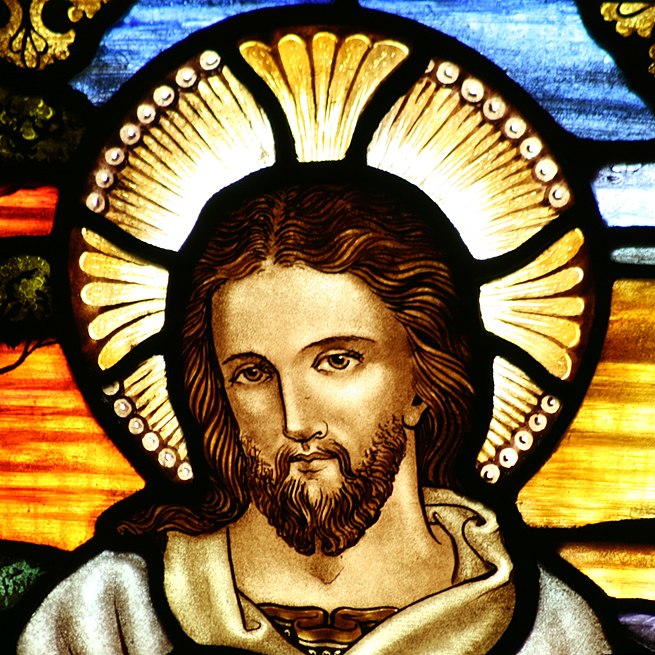
Main Difference
The main difference between Christianity and Islam is that the Christianity is a monotheistic religion founded in the first century, that claims Jesus being the son of God and Islam is a monotheistic religion founded by Muhammad and based on the teachings of the Quran.
-
Christianity
Christianity is a universalising Abrahamic monotheistic religion based on the life, teachings, and miracles of Jesus of Nazareth, known by Christians as the Christ, or “Messiah”, who is the focal point of the Christian faiths. It is the world’s largest religion, with over 2.4 billion followers, or 33% of the global population, known as Christians. Christians make up a majority of the population in about two-thirds of the countries and territories in the world. They believe that Jesus is the Son of God and the savior of humanity whose coming as the Messiah (the Christ) was prophesied in the Old Testament. Christianity has played a prominent role in the shaping of Western civilization.
Christianity grew out of Judaism and began as a Second Temple Judaic sect in the mid-1st century. Originating in the Roman province of Judea, it quickly spread to Europe, Syria, Mesopotamia, Anatolia, Transcaucasia, Egypt, Ethiopia and the Indian subcontinent, and by the end of the 4th century had become the official state church of the Roman Empire. Following the Age of Discovery, Christianity spread to the Americas, Oceania, sub-Saharan Africa and the rest of the world through missionary work and colonization.
Christian theology is summarized in creeds such as the Apostles’ Creed and the Nicene Creed. These professions of faith state that Jesus suffered, died, was buried, descended into hell, and rose from the dead, in order to grant eternal life to those who believe in him and trust in him for the remission of their sins. The creeds further maintain that Jesus physically ascended into heaven, where he reigns with God the Father in the unity of the Holy Spirit, and that he will return to judge the living and the dead and grant eternal life to his followers. His incarnation, earthly ministry, crucifixion and resurrection are often referred to as “the gospel”, meaning “good news”. The term gospel also refers to written accounts of Jesus’ life and teaching, four of which—Matthew, Mark, Luke, and John—are considered canonical and included in the Christian Bible, as established by the 5th century for the ancient undivided Catholic and Eastern Orthodox traditions before the East–West Schism.
Throughout its history, Christianity has weathered schisms and theological disputes that have resulted in many distinct churches and denominations. Worldwide, the three largest branches of Christianity are the Catholic Church, the Eastern Orthodox Church and the various denominations of Protestantism. The Catholic and Eastern Orthodox churches broke communion with each other in the East–West Schism of 1054. Protestantism came into existence in the Protestant Reformation in the 16th century, splitting from the Catholic Church.
-
Islam
Islam () is a universalizing Abrahamic monotheistic religion teaching that there is only one God (Allah) and that Muhammad is a messenger of God. It is the world’s second-largest religion and the fastest-growing major religion in the world, with over 1.8 billion followers or 24.1% of the global population, known as Muslims. Muslims make up a majority of the population in 50 countries. Islam teaches that God is merciful, all-powerful, unique and has guided mankind through prophets, revealed scriptures and natural signs. The primary scriptures of Islam are the Quran, viewed by Muslims as the verbatim word of God, and the teachings and normative example (called the sunnah, composed of accounts called hadith) of Muhammad (c. 570–8 June 632 CE).
Muslims believe that Islam is the complete and universal version of a primordial faith that was revealed many times before through prophets including Adam, Abraham, Moses and Jesus. As for the Quran, Muslims consider it to be the unaltered and final revelation of God. Like other Abrahamic religions, Islam also teaches a final judgment with the righteous rewarded paradise and unrighteous punished in hell. Religious concepts and practices include the Five Pillars of Islam, which are obligatory acts of worship, and following Islamic law, which touches on virtually every aspect of life and society, from banking and welfare to women and the environment. The cities of Mecca, Medina and Jerusalem are home to the three holiest sites in Islam.
Aside from the theological viewpoint, Islam is historically believed to have originated in the early 7th century CE in Mecca, and by the 8th century the Umayyad Islamic caliphate extended from Iberia in the west to the Indus River in the east. The Islamic Golden Age refers to the period traditionally dated from the 8th century to the 13th century, during the Abbasid Caliphate, when much of the historically Islamic world was experiencing a scientific, economic and cultural flourishing. The expansion of the Muslim world involved various caliphates and empires, traders and conversion to Islam by missionary activities (dawah).
Most Muslims are of one of two denominations: Sunni (75–90%) or Shia (10–20%). About 13% of Muslims live in Indonesia, the largest Muslim-majority country, 31% in South Asia, the largest population of Muslims in the world, 23% in the Middle East-North Africa, where it is the dominant religion and 15% in Sub-Saharan Africa. Sizeable Muslim communities are also found in the Americas, the Caucasus, Central Asia, China, Europe, Mainland Southeast Asia, the Philippines, and Russia.
